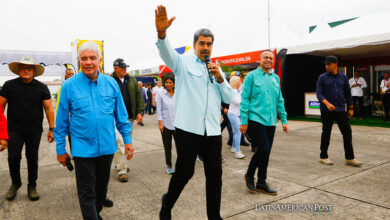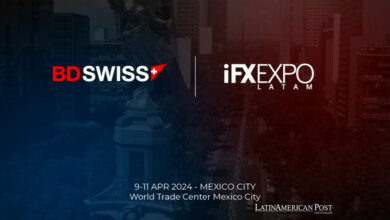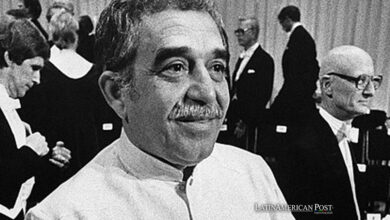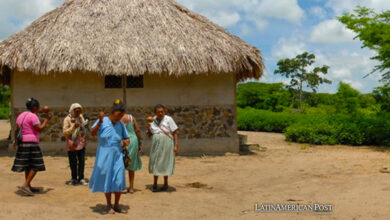Elections in Colombia 2023: the Disorder of Petrism vs the Inexperience of Duquism
The regional elections that will be held in Colombia this 2023 pose a scenario in which two political forces would meet: Petrism, led by the Pacto Histórico Party, and Duquism that was born with former officials of Iván Duque.

Photos: TW-petrogustavo, TW-ivanDuque
LatinAmerican Post | Christopher Ramírez Hernández
Escucha este artículo
Leer en español: Elecciones en Colombia 2023: el desorden del petrismo vs la inexperiencia del duquismo
In October of this year, a new election day will be held in Colombia, this time with a regional nature. That is, to decide who will be the next mayors or mayors of the cities and municipalities of this country. Likewise, the governors of the 32 departments, deputies of the Departmental Assemblies, municipal councilors and mayors (representatives of the localities into which each city or municipality is divided) will be elected.
According to the National Electoral Council, the entity that directs the electoral process in Colombia, until March 29, more than 1,025 Significant Citizens and Social Movements groups had registered with the intention of participating in the regional elections of this year. This is a total of 317,018 citizens who have the illusion of being elected to public office in Colombia.
Now, as is customary in world political culture, attention has focused on the most important political parties and collectives. Among these, of course, are renowned organizations such as the Pacto Histórico (government coalition led by President Gustavo Petro), as well as the Centro Democrático, whose natural leader is former president Álvaro Uribe.
Duquismo: a New Political Force?
However, there is a force that is measured between the traditional and the new; that was born from the bosom of what was the government of former president Iván Duque and that several experts have simply branded as duquism. These are former officials who provided their services in favor of Duque's objectives between 2018 and 2022. Now they dream of giving a boost to their political careers in high-level public positions such as mayors.
Among the Duquist candidates who sound the strongest, the role of Diego Molano, former Defense Minister of the Duque government, stands out, who at the beginning of February announced his pre-candidacy for signatures for the Mayor of Bogotá. The same situation is experienced by the former Minister of Justice, Wilson Ruíz, in Cali; and the former peace commissioner, Juan Camilo Restrepo, in Medellín. In all three cases, participation in the electoral arena will be done through signatures.
It may interest you: Opinion: Will the Latin American Political Pendulum Swing Back to the Right?
In fact, this "independence" situation of the candidates who were once public officials in the Duque administration, has caused various characters to consider Duquismo only as a fraction of Uribismo. This force does not want to represent itself as Uribismo, but comes with similar ideals, those of the extreme right in Colombia. "The Duquismo is, of course, the Uribismo, but it is also the other parties of the same ones with the same ones that elected Duque and that make him the majority in Congress, because the Democratic Center only has 20%", was the explanation made in 2022 by the then senator Jorge Enrique Robledo, a clear opponent of Iván Duque.
In this sense, for various characters it is clear that the duquismo could simply be one more piece in the game between the right and the left, taking sides, of course, on the side of neoliberal ideals. Issues such as infrastructure, security, and defense of the free market are its main emblems.
Petrism: Controversies Could Take their Toll
On the other side is Petrism, led of course by President Petro and the coalition that led him to the Casa de Nariño (presidential headquarters): the Historical Pact. To date, this left-wing group made up of parties such as Colombia Humana, the Unión Patriótica, the Polo Democrático, the Movimiento alternativo Indígena y Social (MAIS), the Partido Comunes (former FARC), among others, claims to have no candidats for the Colombian regional elections.
"The Historical Pact coalition does not yet have any candidacy for single-member office or public corporation in municipalities or departments of the country," the group explained in a press release. For Petrism, a current that is considered alien to the traditional parties (although in some cases it sees the support of the Liberal Party), the decision to choose candidates is not a task that should be done by hand. In contrast, it must be born from a democratic process in each and every one of the territories in which it has a political and social interest.
Thus, as Senator Gustavo Bolívar explained at the end of last year, the candidacies will be defined by a popular consultation in which pre-candidates from each force that make up the Pacto Histórico will participate. The character that receives the most votes will be the flag bearer of the coalition. “For example, in a city, candidates for mayor of Polo, MAIS, UP or Colombia Humana can come out. The one who wins the consultation will be the candidate of the Pact”, indicated Bolívar.
However, what appears to be a scenario full of democracy and transparency has been overshadowed by some internal divisions within the party, as well as by external allies who have turned their backs on renowned issues such as health, labor and pension; as well as the already fallen political reform.
For some people related to "change" promised by Petro, it is a bit unfair to have to put everything to a vote. For them it is clear that there are great references, both nationally and regionally, that deserve to have the endorsement of the coalition for the elections.
Similarly, there are others who fear how the recent scandal involving Nicolás Petro, son of the President and deputy in the Assembly of Atlántico, may affect them. It should be remembered that Petro was involved in an alleged case of bribery by illegal groups that would have provided money to finance the so-called Total Peace in Colombia. Although Gustavo Petro's son assured that he had no ties in these situations, there is no doubt that it is a controversy that has hit Petrismo hard and that could cost too much in the face of Colombian voting.
Thus, this year's regional elections begin to take shape in the midst of a complicated political environment in which the ruling party is divided and disordered, and the Duquismo (as a new political force), does not want to take any position and could pay for the "hazing".




